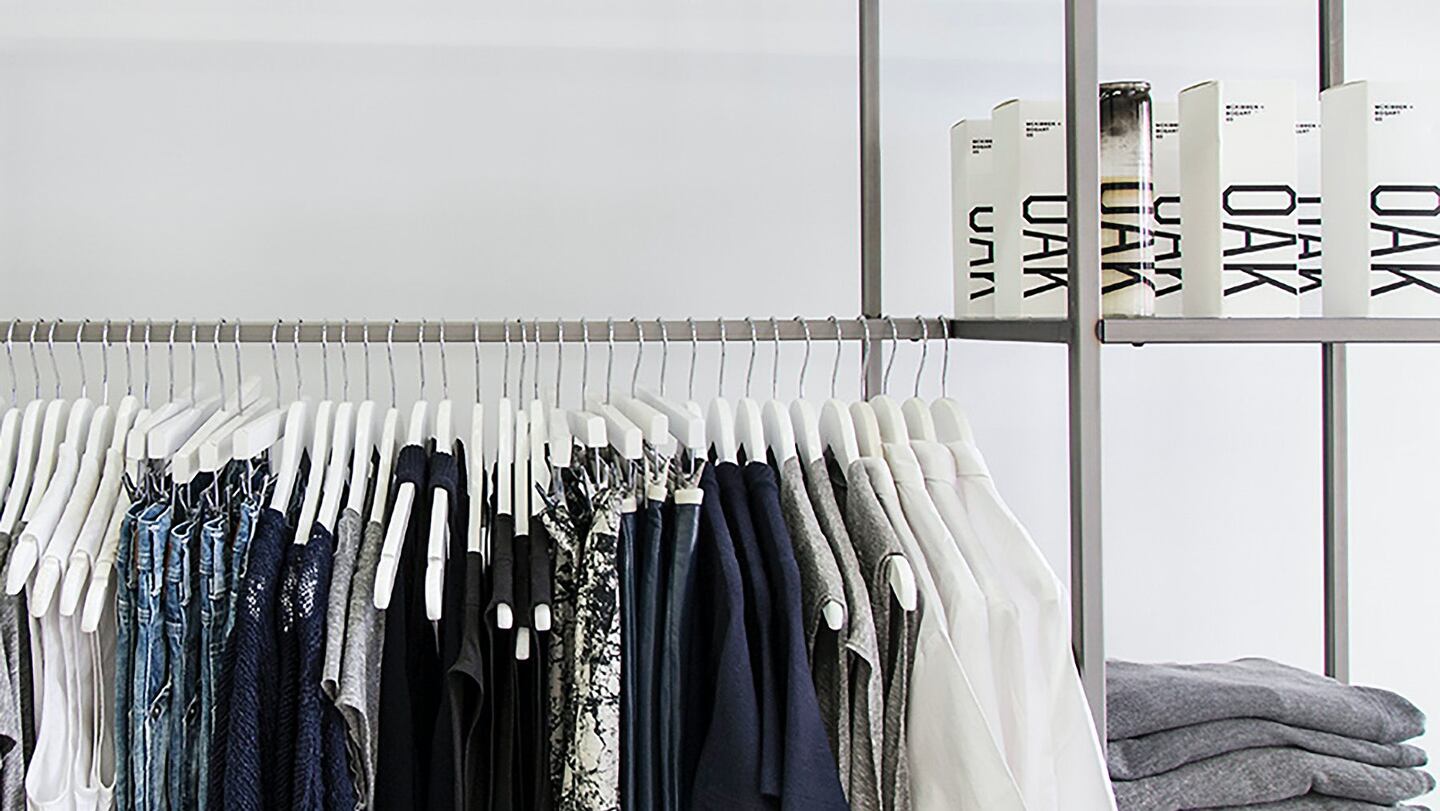
The Business of Fashion
Agenda-setting intelligence, analysis and advice for the global fashion community.

Agenda-setting intelligence, analysis and advice for the global fashion community.

NEW YORK, United States — The founders of Oak, a small chain of fashion boutiques based in Brooklyn, are buying back their business after two and a half years under ailing retailer American Apparel. It ends a rocky saga for the tiny company unwittingly drawn into a dramatic battle among a corporation, hedge funds, and a scorned executive.
Back in early 2013, Oak was in trouble. After its launch in 2005, the retailer had success selling a mix of monochrome private-label items, such as $400 black varsity jackets and $150 gray pullovers, alongside styles from emerging designers. Squeezed by the recession, it became saddled with debt. Then founders Louis Terline and Jeff Madalena ran into Dov Charney, the founder and, at the time, chief executive of American Apparel at a party in Las Vegas.
American Apparel bought Oak for an undisclosed sum that year, and the duo gave up their stake in the company. The brand was plugged into American Apparel's supply chain and distribution network, quickly doubling sales to around $10 million. New stores were opened in Paris, Tokyo, and Los Angeles. Like all marriages, there were some hiccups, but things went quite well at the beginning, Terline recalled. Nobody involved was prepared for the coming ordeal.
A year later, Charney was ousted by American Apparel's board of directors amid allegations of misusing company funds and violations of the company's sexual harassment policies. He then spent more than a year fighting, but failing, to regain control. Facing eroding sales, multiple lawsuits, and a battered reputation, American Apparel filed for Chapter 11 bankruptcy protection in late 2015.
ADVERTISEMENT
After Charney's ouster, it was clear to Terline that American Apparel had no place for a boutique like Oak. "They told us, straight up, that they didn't have the resources to dedicate to us, but they still wanted us to somehow achieve profitability," Terline said.
In the two and a half years Oak was a part of American Apparel, the company churned through four different CEOs with four different strategies. The Oak acquisition had been part of a push by Charney to pick up little labels and use the larger company's infrastructure to take them global. Oak, under new management, found its future in jeopardy.
Finally, Oak found a way out. In January, Terline, Madalena, and outside investors repurchased the company out of bankruptcy proceedings for less than $600,000. The founders regain enough equity to "feel comfortable," said Terline, relieved he's done dealing with bankruptcy court and getting unhitched from American Apparel.
Charney told Bloomberg: "I have enormous respect for Jeff and Louis, and I think they're two of the most important creatives in the casual apparel sector. I was extremely excited about working with them, and I think there is tremendous potential for their company to be scaled to another level."
A spokeswoman for American Apparel declined to comment.
Oak emerges from its time under American Apparel in reasonable shape. All its 30 employees will remain on board, and the styles at Oak won't be overhauled. The first priority is to rebuild back-end logistics and get the warehouse, website, and retail floors in sync. Then the focus will shift to expanding the online operation. Over the next few months, the company will be holding promotions to get rid of the excess merchandise acquired during the purchase from American Apparel. With its four remaining locations in New York and Los Angeles, Terline says it will be a couple of years before Oak begins expanding its store fleet again.
"Would I do it all over again? I can't say I would," says Terline, who still wonders how the little boutique ended up thrown into a such a high-profile controversy. But it's all relative, he says. "I'm sure Dov has a lot more regrets than we do."
By Kim Bhasin; editor: Josh Petri.
Designer brands including Gucci and Anya Hindmarch have been left millions of pounds out of pocket and some customers will not get refunds after the online fashion site collapsed owing more than £210m last month.
Antitrust enforcers said Tapestry’s acquisition of Capri would raise prices on handbags and accessories in the affordable luxury sector, harming consumers.
As a push to maximise sales of its popular Samba model starts to weigh on its desirability, the German sportswear giant is betting on other retro sneaker styles to tap surging demand for the 1980s ‘Terrace’ look. But fashion cycles come and go, cautions Andrea Felsted.
The rental platform saw its stock soar last week after predicting it would hit a key profitability metric this year. A new marketing push and more robust inventory are the key to unlocking elusive growth, CEO Jenn Hyman tells BoF.